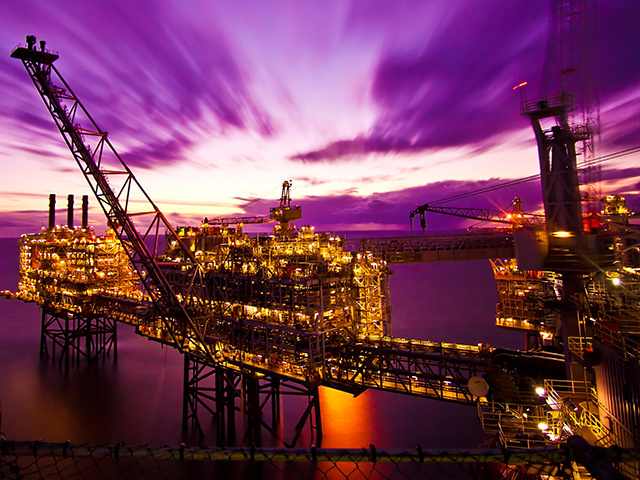
Chinese companies could follow their South Korean equivalents into making an impact in the North Sea – offering lucrative opportunities to companies in the UK supply chain.
Earlier this month a report indicated contract wins on the UK continental shelf were worth a potential $88billion, with South Korean firms having started to make their presence felt in the region.
Hyundai has picked up three EPC contracts in recent years – including a $1.2billion deal on the Shiehallion expansion – while last year Daewoo entered the scene, winning up two EPC contracts for UK firms.
But with Chinese companies having increased their presence in recent times – including CNOOC’s takeover of operator Nexen earlier this year – , the Energy Industries Council are looking to them as a potentially lucrative , if still relatively unknown, factor in the short-to-medium term for the UKCS.
“China’s a bit of an unknown to a certain extent – what they’ve invested in is known developments, known prospects,” Neil Golding, head of business information at the Energy Industries Council, told Energy Voice.
“What will be interesting to see is if they bring their supply chain with them. At the moment we’re just not sure if that will be the case. If Cosco come over, for example, or the other shipbuilding yards that are out there, it’s one to watch.
“I’ve had people say to me that the Chinese are coming. You just had to walk around Offshore Europe – I don’t think anyone’s seen so many Chinese suppliers here.”
READ MORE:
Energy Editor Jeremy Cresswell on the Chinese North Sea interests
Although the Chinese remain an unknown factor, Korea’s first steps onto the UKCS has seen them make a significant impact in a short space of time. But with Norway ramping up exploration and production on new fields on the Norwegian continental shelf and in the Barents Sea, the EIC says it expects a move across the North Sea to be the next big step for Far Eastern firms.
“In the report we alluded to the fact the South Koreans came over – who is to say they won’t come back?” said Mr Golding.
“It’s a trend worth watching, but it is not necessarily a trend that we will continue to see to grow, because are there the opportunities in the UKCS? The Koreans, in Norway, that could be their next big market.
“We can’t compete as a supply chain because we don’t have the fabrication yards to be able to build such large structures. That’s the only reason why these Korean companies have got almost one up on us. Also, they bid so aggressively. They aren’t making that much money, by all accounts, on some of these projects they are winning.”
Short to medium term befefits for the UK supply chain remains strong, however – and the trade body says its members have to be quick to react to the opportunities on offer, not just in the UK but potentially overseas.
“What the UK supply chain needs to understand, with those countries, is the $1-2billion EPC contracts they’re undertaking will filter down into the supply chain,” said Golding.
“So maybe they should not be just targeting the operators and the local supply chain, our companies need to get over to Japan and South Korea and establish working relationships with these companies.”
One area the group has not noticed significant switching, though, is into the renewables sector. Despite consistent talk from industry leaders about how skills between the oil and gas and the renewables industries are transferable, the EIC said many of its members were waiting for the right incentive to make the move across into supporting the offshore renewables sector.
“Opportunities are there, but what we need to see is the investment from the Siemens and the turbine suppliers, and then the supply chain may come onboard,” said Golding.
“The big issue with renewables, and we hear it a lot with our member companies, is that the supply chain needs a commitment from developers… and the developer needs commitment from the Government.
“Hopefully with the new Energy Bill we might see that commitment, but once the developers commit then your tier one contractors will commit, and the supply chain will follow. Until that happens, it’s quite difficult to know what impact it’s going to have.”
Recommended for you
